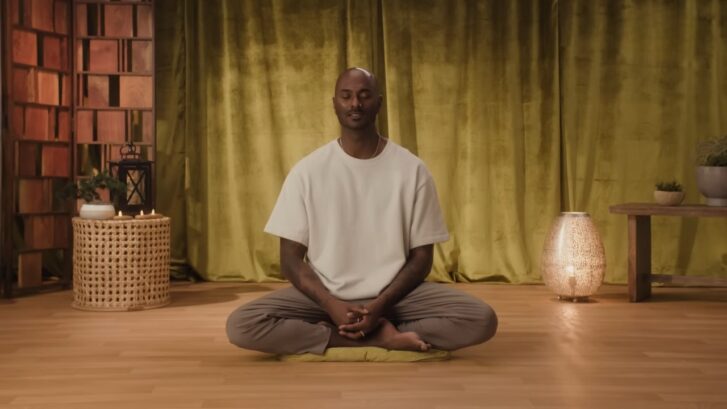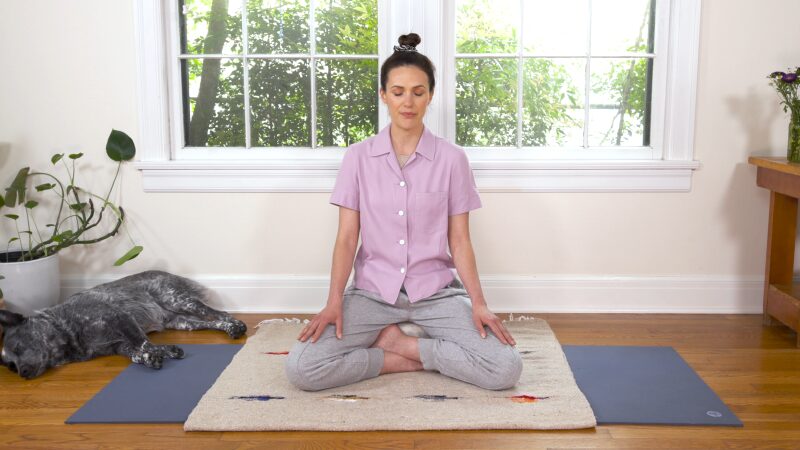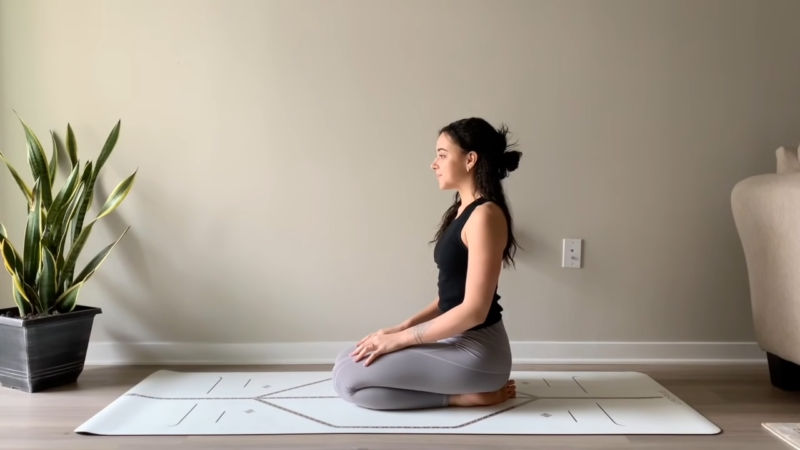Our mental health is a vital part of our total well-being, shaping how we feel, think, and interact with others. It influences our perceptions and actions. Meditation, rooted in ancient traditions, is now widely acknowledged as a potent means to boost mental health.
Its value shines through in its ability to reduce stress, boost emotional health, and sharpen focus and concentration. Let us see where meditation and mental health connect.
What is the Connection?
Systematic reviews and meta-analyses give a thorough perspective on the impact of meditation on mental health. By pooling data from various studies, they establish that meditation plays a significant role in reducing stress.
Similarly, meta-analyses can show us quantifiable patterns, such as significant reductions in symptoms of anxiety and depression among practitioners.
Psychological Impact
Meditation significantly impacts our mental health. Studies reveal it enhances life quality by managing chronic stress and lessening mental health issues.
- Meditation techniques aim to calm the mind, leading to lower stress levels.
- It is often associated with decreased depressive symptoms.
- Studies have found that it can reduce anxiety levels.
Physiological Effects on Health
Physiologically, meditation can encourage changes in our bodies that support physical and mental well-being. Here are some health benefits:
- Improved immune system functioning has been linked to consistent practice.
- Meditation may reduce sympathetic activation, which is associated with the body’s ‘fight or flight’ response.
- For those experiencing chronic pain, it can serve as a coping mechanism, potentially improving perceived pain levels.
By attending to both our minds and bodies, meditation emerges as a valuable component in our striving toward achieving and maintaining mental health.
Meditation Techniques and Their Specific Benefits
Numerous meditation techniques exist, each providing distinct advantages for mental health. Today, we want to provide you with a list of a couple of techniques that can provide an array of benefits. Of course, it is important to know what your needs are.
Mindfulness and Presence
Mindful practice encourages us to immerse ourselves in the present moment, enhancing our alertness and anchoring us to the here and now. As we engage more regularly, our ability to maintain focused attention improves, leading to a sense of mental clarity and emotional stability.
Benefits
- Enhances attention and concentration
- Improves emotional regulation
- Cultivates awareness of the present moment
Focused and Cognitive Benefits
In this case, you concentrate intently on a particular element, such as your breath, a sound, or a mantra. This intense concentration acts as a mental exercise, significantly enhancing your focus and memory, akin to giving your brain a thorough workout.
Benefits
- Strengthens concentration and focus
- May improve memory and cognitive function
Movement-Based Forms
Yoga, tai chi, and qigong, which are forms of movement-based approach, individuals combine physical postures with deliberate breathing and focused attention. These practices aim to create a fluid harmony between body and mind, alleviating stress and relaxing tension.
Benefits
- Facilitates a connection between mind and body
- Promotes relaxation and emotion regulation
Meditation in our Daily Life
Including daily meditation in your routine can greatly enhance your mental well-being. It aids in soothing the mind, effectively handling stress, and boosting self-esteem and self-compassion, similar to a human nurturing their inner peace and emotional resilience.
How to Establish a Personal Routine
Establishing a personal meditation routine can significantly enhance your mental well-being. An effective way to start is by integrating tools like the Mala from BuddhaStones, which can be used in Mala meditation to maintain inner peace and more. Begin by setting aside a specific time each day, such as early mornings or tranquil evenings, to create a consistent habit.
Choose a quiet, comfortable space dedicated to your practice. Start with short sessions, gradually increasing the duration as you become more comfortable. Incorporating the Mala in your routine can add a tactile element to your practice, helping to deepen your focus and enhance the meditative experience.
Programs and Community Resources
For those of us seeking guidance and structure, meditation programs offer curated experiences that cater to different levels of expertise. These programs often provide a series of guided sessions, tips for enhancing practice, and support for overcoming common roadblocks.
Community resources can be invaluable in sustaining a meditation practice. Local meditation centers, support groups, and even online forums provide an opportunity to connect with others on this journey. Engaging in community can also improve our sense of connectedness, bolstering self-esteem and fostering self-compassion.
By tapping into these resources and mindfully crafting our unique practice, we contribute to a foundation of well-being that permeates all aspects of our lives.
Meditation for Special Populations and Disorders
You will certainly are that selecting the right medication for a disorder depends on numerous factors. One of the most prominent ones is taking special populations in the consideration. Sometimes, some medicine can have a negative impact on younger demographic. Therefore, consulting with a professional is an absolute must.
Disorders and Recovery
Meditation serves as an effective, non-pharmaceutical approach to enhance mental health for various conditions. Its effectiveness is particularly notable in alleviating symptoms of depression and anxiety.
Specifically, mindfulness provides significant advantages for individuals struggling with post-traumatic stress disorder (PTSD) and previous substance abuse issues. It contributes to pain reduction, lessens burnout stress, and addresses diverse mental health issues.
Consistent meditation practice lifts mood and aids in preventing depression. By cultivating an attitude of being present and accepting the current moment, mindfulness greatly reduces anxiety levels.
Mindfulness-Based Stress Reduction (MBSR) proves exceptionally beneficial in emotional management, especially for those with PTSD. Meditation also plays a crucial role in addiction recovery, boosting self-awareness and the control over one’s thoughts and actions.
Summary
As you can see, there are numerous links between mental health and meditation. Naturally, taking a look at numerous factors depending on the case. Here, you can take a look at a couple of factors that will provide you with just enough knowledge to see these connections in the future. We are certain you will find this insight of ours.
Related Posts:
- Top 10 Must-Read Books for Nurturing Mental Health…
- Understanding How HGH Influences Mental Well-Being:…
- How Social Media Directly Impacts Your Mental Well-Being
- Mastering the Art of Boring Self-Care: Elevate Your…
- 5 Best Meditation Frequencies in 2024 - Start Your Journey
- Exploring 7 Benefits of Red Light Therapy for Mental…
















